Tax free
For drivers of Battery Electric Vehicles (BEVs), that's purely electric cars rather than plug-in hybrids, road tax is absolutely free. Even if you have a plug- in hybrid car your road tax will be less than a petrol or diesel car.


With no internal combustion engine, fully electric vehicles have significantly fewer moving parts inside, like a clutch system. They also see less brake wear as a result of regenerative braking systems, so you'll find that they cost much less to maintain.
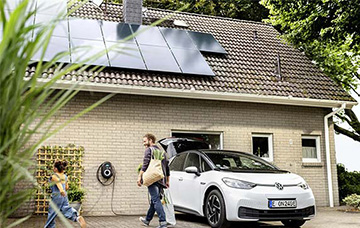
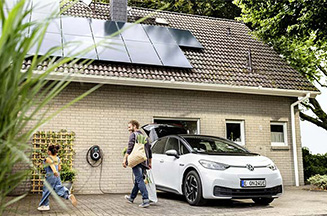
It's not just electric car costs you can cut, you can make sustainable changes to your whole home. With solar panels you generate your own electricity so by installing a solar system, along with a home charger, you could be charging your car for free.
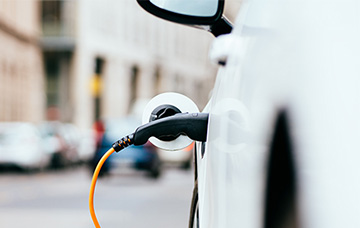
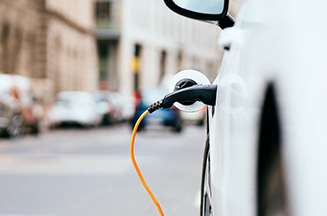
For fully electric and hydrogen fuel cell vehicles the congestion charge and Ultra Low Emission Zone (ULEZ) charge is totally free. Because they have no tailpipe emissions electric cars are eligible for the cleaner vehicle discount in London. So, you'll be saving and doing your bit for the environment.
Whilst the initial spend on an electric car is still more expensive than a petrol or diesel car, the cost of running them is significantly lower, with the average petrol and diesel cost over £1.63 per litre1; more than the average cost of electricity at 34p/kWh2. Plus, if you get your energy from E.ON Next you can rest assured that you're powering your car with 100% renewable electricity.


The average electricity cost in the UK is 34p per kWh.1
The average cost of petrol is £1.631
The cost of charging on the road can vary, based on the speed of the charger. As an example, you could charge a Nissan Ariya Evolve 87kWh Auto with a 50kW charger in an hour for just £23.3
There are also still many free EV chargers available across the UK. This is a great incentive to switch to electric. Most of them can be found in supermarket car parks, so you can charge whilst you do your weekly shop. You can locate public charge points on the E.ON Drive map.
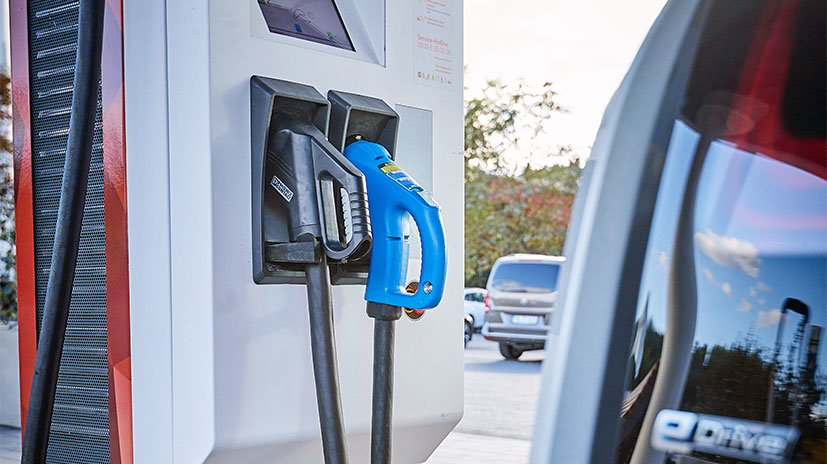
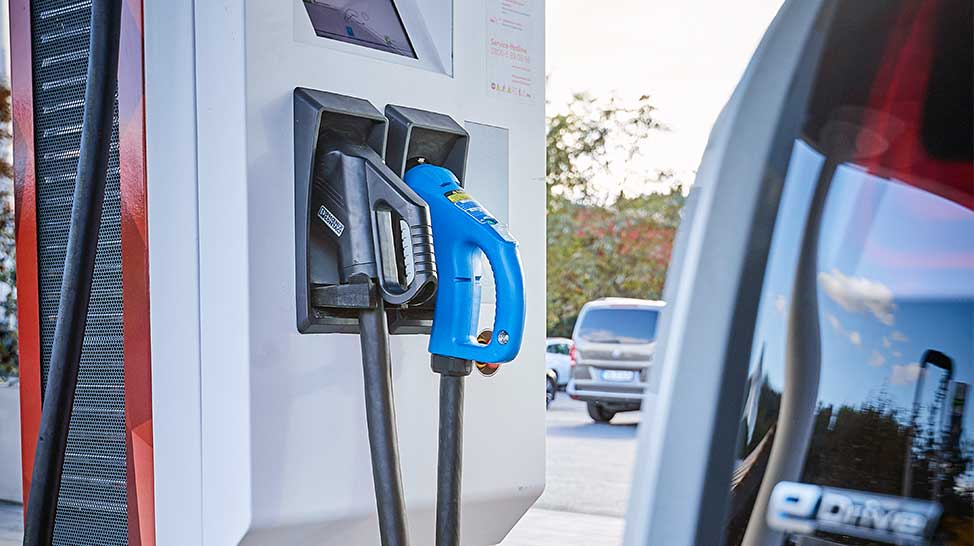
Fast chargers are the most common public chargers found in supermarkets and public car parks. They usually give you a charging power of 7kW or 22kW.
Slow chargers will give you a charging power of 3kW.
Rapid chargers will give you a charging power of 50kW.
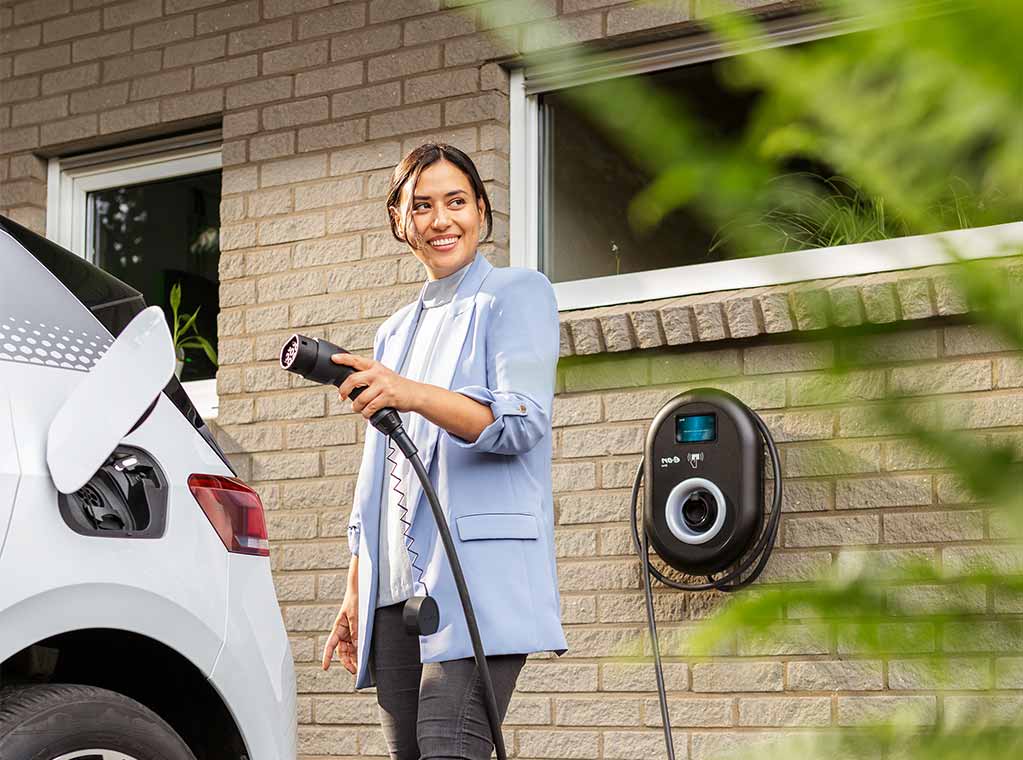
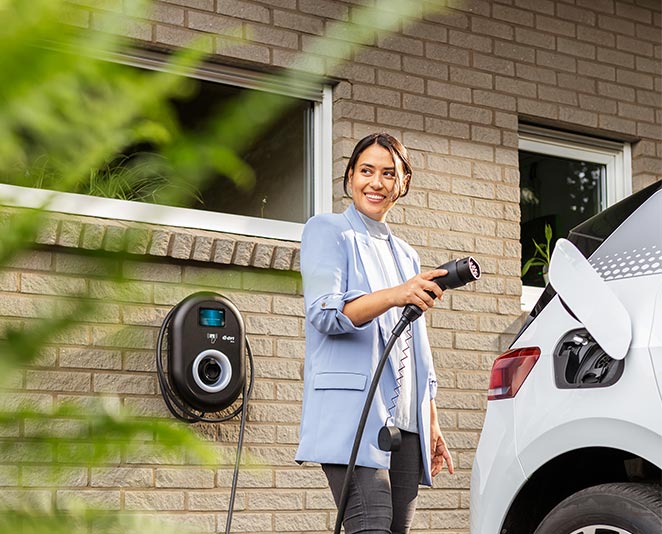
1. Average price of unleaded petrol £1.63 per litre. Average price of low sulphur diesel £1.80 per litre. Prices correct as of 26 September 2022. According to figures available on: https://www.gov.uk/government/statistics/weekly-road-fuel-prices
2. The average price of electricity is based on the October 2022 price cap at 34.04p per KWh.
3. The public charging price is based on charging a Nissan Ariya Evolve 87kWh Auto with a 50kW charger starting with 20% battery and filling to 80% (80% is recommended by manufacturers for rapid charging.)
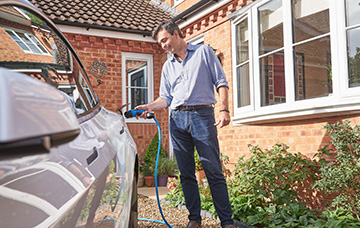
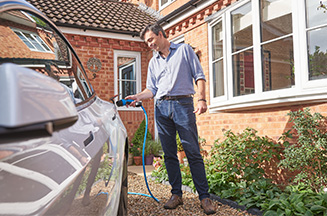
Charging your car at home is the way to go for simple plug in and go solution. Discover our home chargers today.

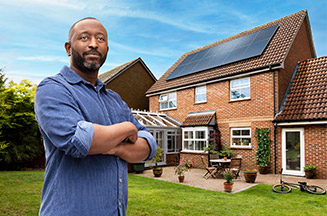
Adding solar panels to your home means you can generate cleaner electricity and save money on your bill. And adding a battery means you can store up excess energy to use when you need it.
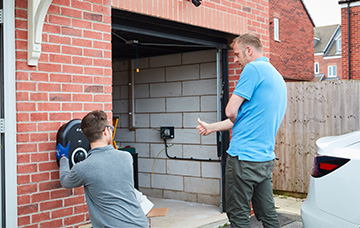
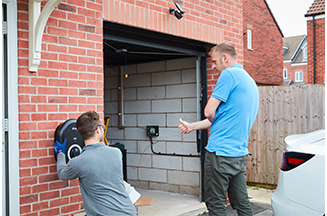
We've pulled together an overview of the EV installation process from booking your appointment to plugging in for your first charge.